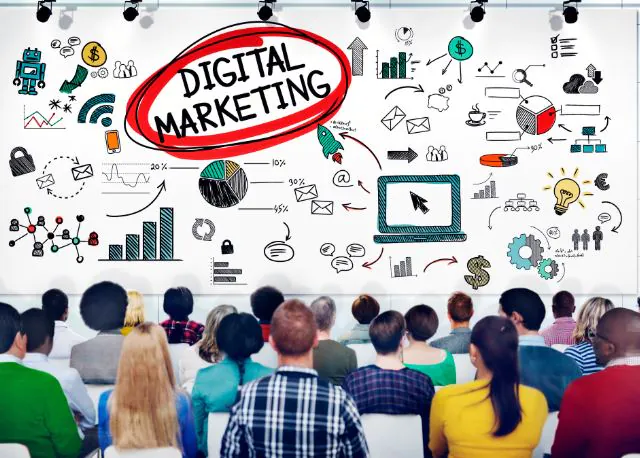In today’s rapidly evolving business environment, supply chain efficiency is more than a competitive advantage—it’s a necessity. Organizations across industries are under increasing pressure to streamline their operations, reduce costs, and enhance service delivery. One of the most effective strategies to meet these demands is by partnering with a Third-Party Logistics (3PL) provider. The many 3PL logistics benefits go beyond mere operational support—they fundamentally transform the way businesses manage their supply chains, unlocking new levels of agility, scalability, and cost-effectiveness.
Understanding Third-Party Logistics (3PL)

Before diving into the specific advantages, it’s essential to understand the foundation of third-party logistics. A 3PL provider is an external company that manages some or all aspects of a business’s logistics and supply chain operations. These services typically include warehousing, inventory management, order fulfillment, transportation, and even customer support. By outsourcing these functions, companies can focus more on their core business activities while leveraging the specialized expertise, infrastructure, and technology of experienced logistics providers.
Core Components of 3PL Services
Third-party logistics refers to the outsourcing of logistics and supply chain management functions to an external service provider. This encompasses a range of activities including:
Key components
- Warehousing
- Inventory Management
- Order Fulfillment
- Transportation
- Customer Service
By leveraging the expertise and infrastructure of a 3PL, businesses can focus on their core competencies while optimizing their supply chains.
Ready to streamline your logistics? Connect with SpendEdge for actionable insights and tailored 3PL solutions that drive success...
Types of 3PL companies
1. Standard 3PL Providers
These companies offer basic logistics services, which typically include transportation, warehousing, and distribution. Their role is primarily to execute logistics tasks as per the client’s requirements.
2. Service Developer 3PLs
In addition to standard logistics services, service developer 3PLs offer enhanced support such as IT solutions, security features, and product tracking capabilities. They focus on improving the efficiency and safety of the logistics process, often integrating advanced technology to ensure timely deliveries.
3. Customer Adapter 3PLs
Customer adapter 3PLs take over existing logistics operations from their clients. They manage the logistics processes while utilizing the client’s systems and infrastructure. This type allows businesses to maintain some level of control while benefiting from the expertise of the 3PL provider.
4. Customer Developer 3PLs
These providers fully integrate into their clients’ logistics operations, essentially becoming an extension of the client’s logistics department. They take on all logistics responsibilities, adapting their own systems to fit the client’s needs, which allows for a more tailored and comprehensive approach to supply chain management.
5. Transportation-Based 3PLs
These companies specialize in managing transportation logistics. They may leverage assets from other firms or utilize their own fleets to provide comprehensive transport solutions, including freight forwarding and shipping management.
6. Warehouse/Distribution-Based 3PLs
Focused primarily on storage and distribution, these 3PLs manage warehousing operations and oversee inventory management. They often have extensive facilities that allow for efficient storage and quick distribution of goods.
7. Forwarder-Based 3PLs
These providers act as intermediaries in the logistics chain, facilitating shipping and freight forwarding services without owning physical assets like trucks or warehouses. They manage relationships with carriers and handle documentation for international shipping.
8. Financial-Based 3PLs
Financial-focused 3PLs provide services related to freight payment, auditing, cost accounting, and inventory tracking. They help businesses manage financial aspects of logistics operations effectively.
9. Information-Based 3PLs
This growing category includes internet-based platforms that facilitate business-to-business transactions for transportation and logistics services. These companies leverage technology to provide real-time data and analytics for better decision-making in logistics management.
Difference between insourcing and outsourcing 3PL
| Aspect | Insourcing | Outsourcing |
| Control | Greater control over operations and processes, allowing for direct oversight and quality assurance. | Less control over specific processes as they are managed by an external entity. |
| Cost Structure | May involve higher initial costs due to investments in infrastructure, technology, and personnel. | Often leads to cost savings on warehousing, staffing, and transportation by leveraging the 3PL’s existing resources. |
| Expertise | Relies on internal team expertise, which may require significant training and development. | Access to specialized skills and advanced technologies that may not be available in-house. |
| Flexibility | Less flexible in scaling operations quickly due to reliance on internal resources. | More flexibility to scale operations up or down based on demand fluctuations without significant investment. |
| Focus on Core Activities | Allows for a focus on core business functions but may divert attention from logistics management. | Frees up internal resources to concentrate on strategic initiatives while logistics are handled by experts. |
| Risk Management | Potentially lower risk regarding quality control and operational standards but may face challenges in handling disruptions. | Risks associated with quality control can arise if the 3PL does not meet performance expectations; however, 3PLs often have established contingency plans. |
Top 3PL Logistics Benefits for Supply Chain Optimization
1. Significant Cost Savings
One of the primary reasons businesses opt for third-party logistics is the substantial cost reduction. By leveraging a 3PL’s pre-existing network, infrastructure, and technology, companies can minimize capital expenditures on warehouses, transportation fleets, and logistics software. Shared warehousing, consolidated shipments, and labor cost efficiencies all contribute to:
- Reduced cost per order
- Lower upfront investments
- Scalable resource sharing
- Greater purchasing power for transportation rates
These cost efficiencies can be redirected towards growth initiatives and customer-centric improvements.
2. Deep Industry Expertise and Compliance
3PL providers bring years of experience and specialized know-how in logistics operations, regulatory compliance, and cross-border trade. This depth of knowledge helps businesses avoid costly mistakes, improve compliance with regional laws, and manage complex global supply chains. Their investment in advanced systems like Transportation Management Systems (TMS) and Warehouse Management Systems (WMS) further boosts accuracy and process optimization.
3. Enhanced Customer Service Experience
By partnering with a 3PL, businesses can offer faster delivery times, real-time shipment tracking, and higher order accuracy. Many 3PLs operate multiple warehouse locations, allowing them to store products closer to end customers, reducing transit times. With streamlined order processing and tech-enabled transparency, businesses can meet and exceed customer expectations with ease.
4. Scalability and Flexibility
One of the standout 3PL logistics benefits is the ability to scale operations quickly in response to market demands. Whether a company experiences seasonal spikes or sudden growth, 3PLs can ramp up or scale down logistics capacity accordingly without the need for internal restructuring. This flexibility is particularly valuable for startups or e-commerce businesses looking to expand into new markets without taking on high financial risks.
5. Operational Efficiency and Accuracy
Outsourcing to a 3PL provider ensures that logistics processes are optimized for speed, accuracy, and minimal error rates. These providers employ continuous improvement methodologies and lean logistics strategies to reduce lead times, prevent bottlenecks, and streamline order fulfillment. Automation tools and workflow optimization further enhance operational efficiency across the supply chain.
6. Access to the Latest Technology
Technology is a key driver of modern logistics, and 3PL providers are often ahead of the curve. Their systems provide:
- Real-time inventory updates
- Automated order processing
- Advanced data analytics for forecasting
- Integrated dashboards for supply chain visibility
By accessing these technologies through a 3PL partnership, businesses can modernize their logistics without heavy investments.
7. Better Focus on Core Business Activities
With logistics in the hands of experts, companies can focus their internal teams on core functions such as innovation, marketing, product development, and customer engagement. This shift not only improves internal productivity but also enhances the overall strategic direction of the organization.
8. Stronger Risk Management
Supply chain disruptions whether due to weather events, geopolitical shifts, or sudden demand changes can be challenging to navigate. A reputable 3PL brings built-in contingency plans, diversified logistics networks, and risk mitigation protocols to ensure business continuity during turbulent times. This proactive approach provides peace of mind and operational resilience.
Transform your supply chain with SpendEdge’s data-driven 3PL solutions—unlock efficiency, cost savings, and scalability today…
The Future of Third-Party Logistics (3PL)
As businesses continue to evolve and adapt to changing market dynamics, the role of third-party logistics (3PL) is becoming increasingly vital. The future of 3PL is likely to be shaped by several key trends, including:
-
Technological Advancements:
The integration of artificial intelligence (AI), machine learning, and automation will further enhance operational efficiency and accuracy in logistics management.
-
Sustainability Initiatives:
A growing emphasis on sustainability will drive 3PL providers to adopt greener practices, such as eco-friendly transportation methods and waste reduction strategies.
-
Increased Demand for Customization:
Businesses will seek more tailored logistics solutions that meet their specific needs, pushing 3PL providers to offer flexible and customizable services.
-
Globalization and E-commerce Growth:
As e-commerce continues to expand, 3PL providers will play a crucial role in managing complex supply chains that span multiple countries and regions.
By staying ahead of these trends, 3PL providers can help businesses navigate the complexities of modern supply chains while driving efficiency and profitability.
In conclusion, the benefits of third-party logistics are numerous and impactful, making it a strategic investment for businesses looking to optimize their supply chain management. From cost savings and improved inventory control to global reach and risk mitigation, leveraging 3PL services offers a competitive edge in today’s complex marketplace. As companies continue to embrace digital transformation and the need for agility and scalability grows, 3PL logistics will remain a cornerstone for businesses aiming to streamline operations, enhance customer experiences, and ultimately drive profitability. By outsourcing logistics to a trusted 3PL partner, organizations can focus on their core competencies while enjoying the advantages of a more efficient, cost-effective, and flexible supply chain. Embrace the future of logistics today and unlock the full potential of your supply chain with the many benefits of third-party logistics.




